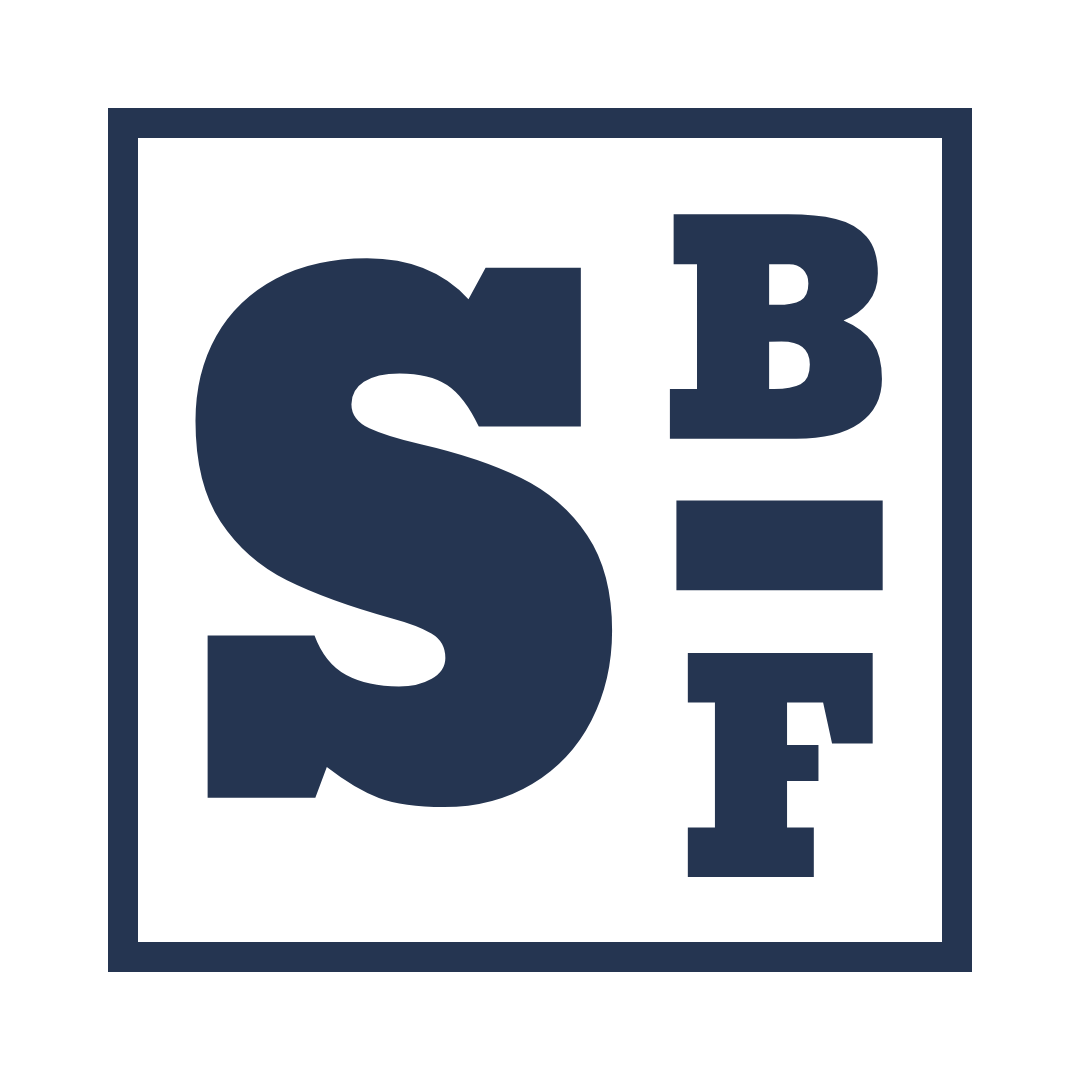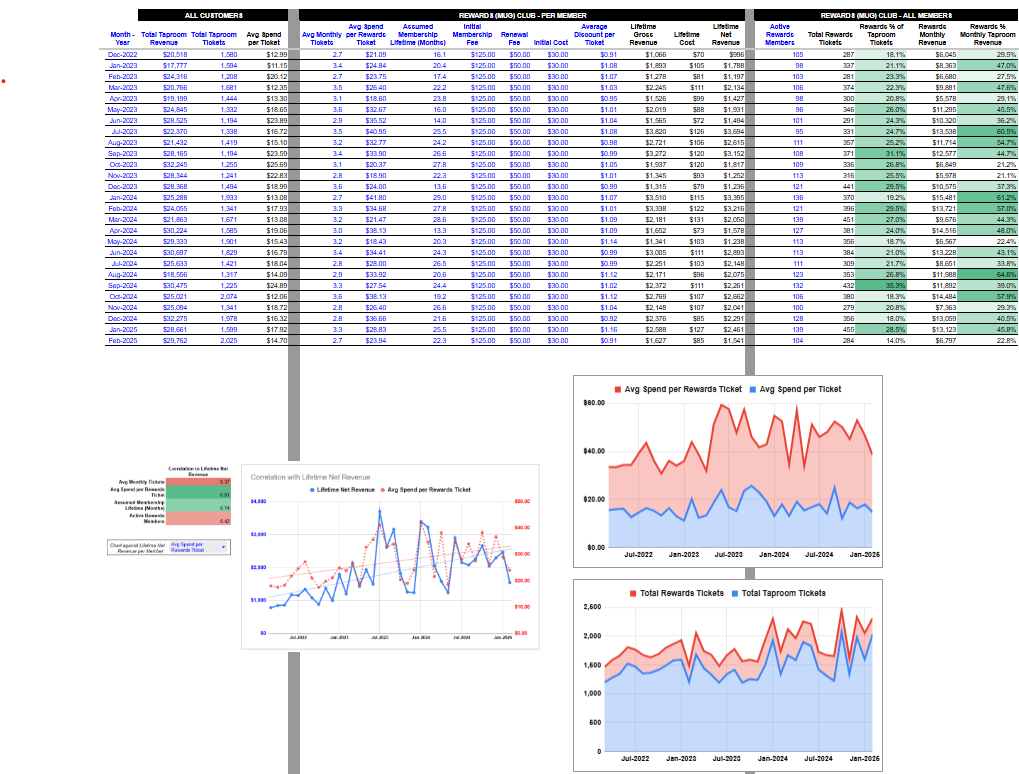Expand Your Rewards Program Without Wrecking Your Margins
Get creative with your brewery's rewards program. It doesn’t have to be limited solely to beer. Food, merchandise, exclusive events - all these elements can add value and make your best customers feel special. But, be careful not to give the house away. Your customers should see membership as an investment, not a quick-win. Not a get-rich-quick scheme. The goal is to encourage repeat visits and increase spend each time they come back.
Tracking your rewards program’s performance is critical to making smart decisions. Use a worksheet, like the one linked below, to measure your program's impact and guide future strategy.
What breweries could be doing wrong with their rewards programs
Don’t front-load your rewards program with too much too soon. In an attempt to attract new members, many breweries offer high-cost perks right out of the gate:
Free beer at signup
T-shirts, glassware, custom mugs, and other costly merch
Steep discounts like 20–25% off all pints
The problem? If members don’t visit frequently or spend enough to offset those upfront costs, your program goes cash-negative real quick.
Example:
Imagine a brewery with 50 members in its mug club. If each member gets $10 in monthly discounts and $25 worth of sign-up swag, that’s $875 in forsaken revenue right out of the gate. Without any guarantee those members are coming back often enough to give an ROI.
Loyalty isn’t about perks or giving away more than you take in. It’s about driving frequent visits and bigger tabs. A rewards program is only valuable if it encourages repeat visits and increased spending per visit. If all you’re doing is giving away product with no strategy, you don’t need a rewards program - you just need a sale.
A well-structured program also gives your best customers a sense of identity and belonging. It’s about building connection and loyalty to your taproom, not just chasing discounts. Treat perks as nudges - small rewards that encourage repeat behavior - not giveaways that attract bargain hunters. If you front-load your perks too heavily, you’re just training your customers to wait for the next handout. When the perks stop, so do they.
How to right-size your brewery rewards program perks
Small, incremental discounts - like $1 off a pint - are much more sustainable than giving away full pours. A free beer might get someone in the door once, but small discounts keep them coming back for more. It makes them feel like they’re getting a deal each time they visit, not just on the first trip.
To keep members engaged, consider setting thresholds for bigger rewards:
After 10 visits, maybe they unlock 20% off a hoodie or a free growler fill
This creates a sense of progression and motivates members to come back regularly
This strategy encourages loyalty while protecting your margins. You’re not just handing out value - you’re making them earn it through repeat visits.
Consider dining-based perks if your brewery serves food
If you have a kitchen, leverage it as part of your rewards strategy. Dining-based perks - like a free beer with your third entrée of the month - are an easy way to drive food sales while supporting your beer program.
This also taps into consumer trends: people are looking for value in their dining experiences, especially when they go out with family or friends. Small, smart incentives can nudge them to pick your brewery vs the place down the street.
Test your brewery rewards program, don’t guess
To really understand what’s working and what’s not, you need data. Use your POS system to pull the information you need and plug it into my Rewards ROI Calculator. This will help you measure:
Average monthly visits
Discount size impact
Member lifespan and overall profitability
You’ll be able to adjust perks with confidence, knowing exactly how they’ve performed in the past. This is how you build a rewards program that’s sustainable, profitable, and actually drives loyalty - not just freebie hunters.


